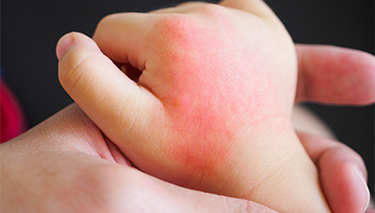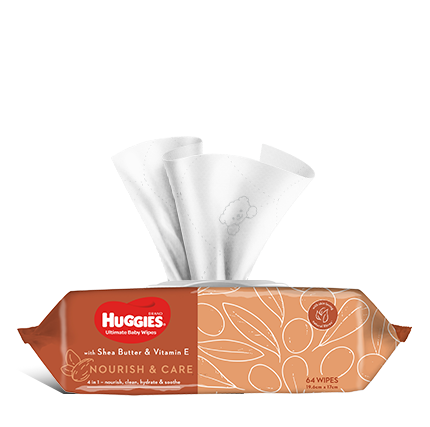Should I be worried?
Toddlers and preschoolers often request fad foods, turn up their noses at any food with a hint of green or only eat food presented in an unusual way. They tend to dawdle over meals and quickly lose interest or be tempted elsewhere. We call this stage ‘picky eating’. It is quite different from a more troublesome eating problem called food Neophobia (a fear of new foods) which tends to be related to personality issues such as anxiety, making it harder to resolve. Because picky eating is a developmental stage, it generally doesn’t inhibit healthy development in children. However, true Neophobia can reduce dietary variety and place stress on parents and caregivers.
How long will this go on for? I hear you ask, despairing of your little one’s nutrition. For some, the picky eating phase may persist right up until school age. Given the right environment, most children will spontaneously grow out of this phase at around that time. Healthy children rarely starve themselves and in fact are very good at meeting their daily energy needs even if it isn’t in the pattern we would prefer. The best advice is to be persistent, don’t make a fuss, and accept that the behaviour will pass. As long as your child is offered healthy food, all you can do is trust that what they choose to eat will be good for them.
So, don’t despair, take consolation in the fact that your child’s behaviour is quite normal, and keep offering them a wide variety of foods along with their “flavour of the month”. Use positive reinforcement and fun, and be a good role model.
Why is my child a picky eater?
Children reject foods for many reasons. It may be that they find the appearance and smell of the food off-putting. Perhaps they see other family members or their peers rejecting the food and wonder why they should be made to eat it. They may even be having trouble getting the food onto a fork or into their mouths; perhaps they are unwell or they might even be teething. Other reasons could be a natural suspiciousness of new things and their increasing ability to exercise their independence or control. So, as you can see, there are many possible explanations for picky eating and each child will be different.
What can I do to ensure my child isn’t missing out?
Forcing or coercing a child to eat a food is inadvisable. Try to set up a good meal-time routine and also discourage snack-eating too close to main meals as main meals tend to be more nutritious.
Always encourage your child’s choices: they are more likely to eat a food they themselves have chosen.
Another way of involving your child in their food selection is allowing them to gather food, e.g.: growing/picking vegetables in your own garden or picking them at the supermarket and involving them in the preparation of meals.
Remember that food rejection is a normal behaviour for most toddlers and preschoolers. Meal-times should always be family-orientated and enjoyable. Do not overestimate the importance of togetherness during meals for a child’s overall development. And don’t forget that children learn from you so be a good example. Try to invent ways to incorporate rejected foods and make the meals attractive to the eye. Remove the plate when they have finished and offer a healthy snack later if you feel they may still be hungry.
Can I make it worse?
Don’t coax, beg, use trickery or rewards (which can have the reverse effect) as this will always backfire on you and cause more strife. Children can be put off their food when eating becomes stressful. Take it gently, don’t rush your child through their meals, teach them to eat slowly – remember, it takes up to 20 minutes for the brain to tell the body that it has been sufficiently fed; this will also avoid overeating. Whenever possible, ensure that your child does not eat alone. Again, let me emphasise the value of togetherness during meal-times for your child’s overall development. Eating in front of the TV is not advisable as the meal and those eating it should be the center of attention.
Remember, it’s up to parents and carers to offer nutritious food for children to choose from!
When should I worry?
- Research suggests that most picky eaters will grow out of this stage at their own pace, particularly if their closest role models have healthy eating habits for them to emulate.
- A child may be slim, healthy and growing well which is fine; another child may be overweight, appear to eat little and may need their diet and physical activity reviewed.
- A healthy child doesn’t starve themselves to death from refusing to eat food.
- However, if a child is underweight and doesn’t appear to be growing well, you should consult a healthcare professional.
- Significant weight stagnation, gain or loss in a child should be discussed with a healthcare professional.
Likewise, if you are still concerned about the health status of a picky eater or a food Neophobic child, you may wish to discuss the concerns with a Doctor, Nutritionist, Dietician or Child Health Professional.
Practical Tips
- Involve your little one in meal preparation, cooking, serving etc.
- Grow vegies or vegie bits (i.e. carrots and sprouts in containers on the bench).
- Be clever with food by hiding fruit and vegies where you can: for example, you can include pumpkin in scones, grate vegies into meals, puree fruit into smoothies or include fruit in their yoghurt. I try to consider colour so I put red vegies into tomato-based pasta sauces, white vegies into baking etc.
- Try to involve others – such as carers – in your child’s meal-time. For example, if your child attends family day care, try asking the carer to give them a main meal at lunch.
- Try to be creative with food: make hedge hogs, faces, houses, and discuss the foods you child is selecting, for example, “Oh my goodness, are you eating the clown’s nose, now how will he smell things?”. It is a great way to make meal-times fun.
- Consider using iron-fortified cereals as they offer more absorbable iron than many foods and this will help with growth and immunity.
- Be persistent and don’t give up. Continue to put a variety of foods on your child’s plate and don’t make a fuss if it goes uneaten. Simply take the plate away (even if it means the dog is getting a little plump!). Even if the meal is rejected, your child is still being exposed to food that will form a part of their diet later on.
- Don’t let children fill up on snacks too close to meal-time.
- Remember, excessive milk can affect iron uptake so don’t rely too heavily on this drink.
- Ensure all meals – including snacks – include some form of protein (meat, dairy, egg, nuts, seeds, pulses, fish, etc.). Grind up nuts and seeds and add them to your child’s breakfast each morning, add to smoothies, frittatas, baking etc. With smoothies, don’t forget to add natural yoghurt and opt for additions such as almonds, oats or rice that have around 100mg of calcium per 100ml. *
- Freeze smoothies and make cool ice blocks that are a meal in themselves.
- Add tiny amounts of treats to foods; for example, make cream cheese crackers with a smidge of additive-free hundreds and thousands. Or pop a few on a banana and freeze etc.
- And remember to always be a good example.
- Caution with nut allergy*
This information has been provided by Leanne Cooper. Leanne is a qualified nutritionist and mother of two very active boys.
For more information see Kid’s nutrition or Baby Care
Last Published* May, 2024
*Please note that the published date may not be the same as the date that the content was created and that information above may have changed since.




















